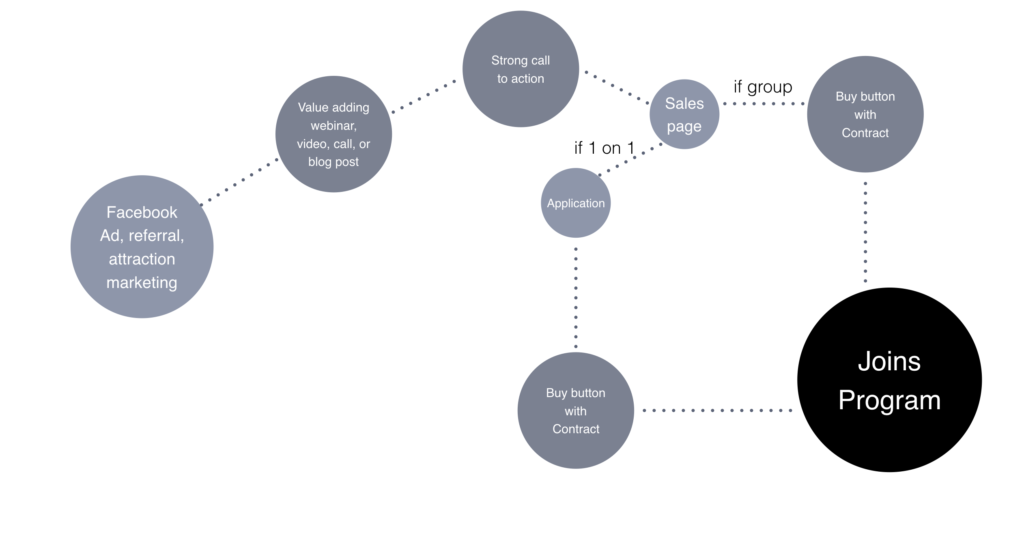This post is all about online business organization.

Hey there, ambitious entrepreneurs and online business owners!
Are you ready to take your online business to the next level by mastering the art of organization?
I’ve seen firsthand how effective organization can be the secret sauce to enhanced efficiency and productivity in your ventures.
After working with coaching clients in over 20 countries and growing my email list to over 100,000 email subscribers, I am so excited to share with you today what works so you can achieve your goals too!
So, let’s dive right in and uncover the top tips for transforming your online business into a well-oiled machine!
Mastering the Art of Online Business Organization: Top Tips for Enhanced Efficiency and Productivity
Why Organization Matters in the Online Business World
Picture this: You wake up in the morning, energized and excited to tackle your day.
But as soon as you sit down at your computer, you find yourself drowning in a sea of emails, tasks, and unfinished projects.
Sound familiar?
In the fast-paced world of online business, staying organized is not just a nice-to-have—it’s a must-have.
Effective organization can work wonders for your productivity, allowing you to focus on what truly matters and driving your business towards success.
Tip 1: Start with Clear Goals and a Vision
Before you dive into the nitty-gritty of organization, take a step back and define your business goals and vision.
What do you want to achieve in the short-term and long-term?
Having a clear direction will serve as your compass when making organizational decisions and prioritizing tasks.
Tip 2: Create a Centralized Digital Workspace
In the digital age, it’s essential to have a centralized workspace where all your business-related files, documents, and resources live.
Utilize cloud-based storage solutions like Google Drive or Dropbox to keep everything accessible from anywhere, anytime.
This not only streamlines your workflow but also ensures data security.
I have had a computer crash in the past and I was very relieved that all of my important files were backed up. Being organized pays off big time!
Click here for more entrepreneur motivation.
Tip 3: Tame the Email Beast
Emails can easily become overwhelming, but fear not—I’ve got some tricks up my sleeve!
Set specific times to check and respond to emails, and use labels or filters to categorize messages.
Unsubscribe from irrelevant subscriptions and consider using email management tools like SaneBox or Unroll.Me to regain control of your inbox.
Tip 4: Prioritize Tasks with a To-Do List
A to-do list is a powerful organizational tool that helps you stay on top of your tasks.
Break down your daily, weekly, and monthly goals into actionable items.
Prioritize tasks based on urgency and importance, and don’t forget to celebrate your accomplishments as you check items off your list!
Tip 5: Embrace Time Blocking
Time blocking is a game-changer for boosting productivity.
Set aside dedicated blocks of time for specific tasks or categories of work.
Whether it’s content creation, client meetings, or marketing efforts, having designated time slots will keep you focused and prevent distractions.
Tip 6: Delegate and Outsource
As a passionate entrepreneur, it’s easy to fall into the “do-it-all” trap.
However, effective business organization means knowing when and how to delegate or outsource tasks. Identify areas where your strengths lie and seek support in areas where others excel.
This frees up valuable time and energy for your core competencies.
Click here for more motivation.
Tip 7: Use Project Management Tools
Project management tools like Trello, Asana, or ClickUp can work wonders for keeping your online business organized.
Create boards or tasks for various projects, assign deadlines, and collaborate with team members effortlessly.
These tools bring structure and clarity to complex projects, making them a must-have for efficient businesses.
Tip 8: Automate Repetitive Tasks
Automation is a secret weapon for savvy online business owners. Identify repetitive tasks, such as social media scheduling, email responses, or data entry, and automate them .
Not only does this save time, but it also reduces the risk of human error.
Tip 9: Stay Mindful of Your Digital Footprint
In the online world, digital clutter can quickly accumulate.
Regularly review your apps, software, and subscriptions to ensure you’re only using what’s necessary.
This not only keeps your digital environment organized but also saves you money.
Tip 10: Maintain a Calendar for Everything
A well-kept calendar is a treasure trove of organization.
Use a digital calendar to schedule meetings, appointments, deadlines, and personal commitments.
Color-code different categories to visually distinguish between work and personal time.
Tip 11: Optimize Your Virtual Workspace
Just as a clean and organized physical workspace boosts productivity, the same applies to your virtual workspace. Arrange your desktop icons and folders in a logical manner, and declutter files regularly.
A tidy workspace contributes to a focused and clear mind.
Tip 12: Track Your Progress and Metrics
Organization extends beyond day-to-day tasks—it’s also about tracking your business’s performance. Monitor key metrics like website traffic, conversion rates, and social media engagement.
Use tools like Google Analytics or social media insights to gather valuable data for informed decision-making.
Tip 13: Develop Consistent Workflows
Consistency is the key to successful organization.
Develop standardized workflows for repetitive tasks, such as client onboarding or content creation.
Having a clear process in place not only saves time but also ensures quality and professionalism.

Tip 14: Adopt a Minimalist Mindset
In a world of endless opportunities, it’s easy to fall into the trap of saying “yes” to everything.
However, adopting a minimalist mindset means being selective with your commitments and focusing on what truly aligns with your goals.
Saying “no” to distractions allows you to say “yes” to your priorities.
Tip 15: Schedule Regular Organization Days
Dedicate specific days or times each month to declutter and organize.
Use these organization days to clean up your digital space, review your goals, and assess your progress.
Remember, organization is an ongoing process, not a one-time event.
Tip 16: Invest in Professional Development
Organizational skills can always be honed and improved.
Invest in books, courses, or workshops on time management, productivity, and business organization.
Continuous learning empowers you to fine-tune your organizational approach and adapt to new challenges.
Tip 17: Stay Balanced and Prioritize Self-Care
In the pursuit of success, it’s essential to maintain a healthy work-life balance.
Prioritize self-care, get enough rest, and engage in activities that recharge your mind and spirit.
A well-rested and balanced entrepreneur is an organized and focused entrepreneur.
Tip 18: Review and Revise Your Organization Strategies
As your online business evolves, so should your organization strategies.
Regularly review your organizational approach and make adjustments as needed.
Stay open to innovation and new technologies that can further enhance your efficiency.
Tip 19: Celebrate Your Organizational Wins
Organizing your online business is no small feat, so take the time to celebrate your wins along the way.
Recognize the progress you’ve made, the challenges you’ve overcome, and the positive impact organization has had on your business and life.
Tip 20: Embrace Flexibility
Life is full of surprises, and your organizational strategies should be flexible enough to accommodate changes. Be open to adapting your plans and embracing new opportunities as they arise.
Remember, mastering the art of online business organization is a journey, not a destination.
Stay committed to continuous improvement, and your efforts will lead to enhanced efficiency, productivity, and overall business success.
Your organized and efficient online business awaits—let’s make it happen!
Your supportive Online Marketing Business Coach

This post was all about online business organization.







